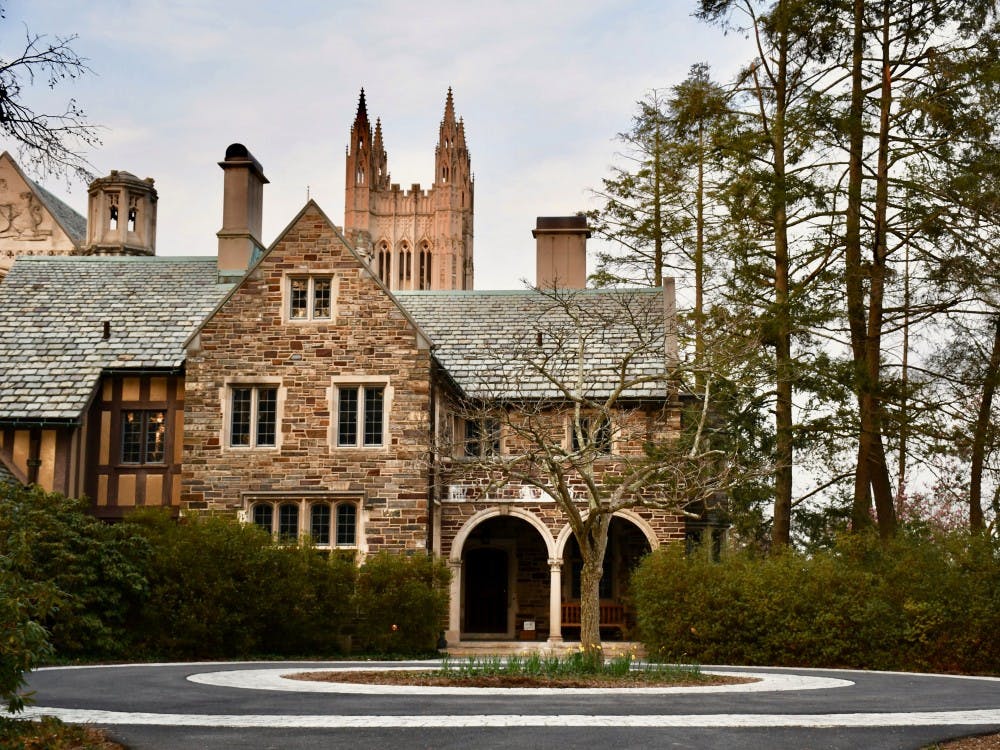In an online petition that had garnered 352 student signatures as of Thursday afternoon, Princeton Graduate Students United (PGSU) urged the University to “make sure that no one is left behind” as the University responds to the COVID-19 pandemic.
Among other steps, the petition asks the University to meet the needs of the graduate student community, ensure continued pay for campus employees, and cover healthcare and transportation costs that may arise from COVID-19.
Of the signatories, 319 are graduate students, while 33 are undergraduates.
“We applaud the university on its recent communications and assurance that undergraduate students with housing or financial insecurity as well as international students would be exempt from the order to leave campus,” the petition reads.
“However, in communication with many Princeton community members over the last few days,” the document continues, “we have discovered some gaps in consideration that must be addressed and filled.”
The petition outlines 16 demands, which seek to establish a “universal floor for all of the Princeton community members,” according to Hrishi Somayaji GS, one of the petition’s authors. Somayaji expressed hope that the University will standardize compensation and other policies across academic departments.
University Spokesperson Ben Chang directed students to the University’s COVID-19 website and noted that the Graduate Student Government and the Office of the Dean of the Graduate School are addressing the issues raised in the petition.
The petitioners expressed concern that the COVID-19 pandemic could increase financial strain on graduate students and University employees, particularly through lost wages and funding.

Chang noted that the University plans to reimburse graduate students who have already “incurred travel or conference expenses for which they have applied for and already been promised financial awards from the Graduate School … regardless of whether the related activity can occur, and our expectation is that all funding sources on campus are doing the same.”
Even so, Paresh Chandra GS, a fourth-year in the comparative literature department, cited an instance of being denied reimbursement for an academic conference, now cancelled due to the virus.
PGSU also noted that the switch to online learning would present challenges for graduate student preceptors, pointing to concerns about laptop accessibility and changes in time zone.
“Something that’s on our minds is that these are situations in which there’s a lot of discretion both in terms of what resources are available to us in our jobs and also what’s asked of us in our jobs at the department level,” Liora O’Donnell Goldensher GS said. “That’s part of what we want the University to work on standardizing.”

The McGraw Center for Teaching and Learning will offer “support and guidance” during the switch to online learning, according to Chang.
On March 17, the University’s office of Human Resources announced that staff may take a maximum of 14 “COVID-19 days,” which apply to “benefits-eligible employees who are unable to work, either on campus or remotely, because of hardships related to the coronavirus.”
“COVID-19 Days are separate and distinct from those when staff may be working from home, for which no leave time is needed,” the memo notes.
PGSU asked that the University expand this policy to allow unlimited paid sick leave for those employees who contract COVID-19.
“The country does not know that much about this virus,” Somayaji said. “People don’t know how long it would take to recover from the virus. These types of things are indicative of the fact that the University does not go far enough in what is currently offered to grad[uate students].”
PGSU members emphasized the need for flexibility in their academic and research timelines.
“It’s going to happen that some of us need to do a lot of care-giving for our families or get sick ourselves,” O’Donnell Goldensher said. “The timelines of our work are going to be disrupted by those things. We still don’t have clarity about how our program deadlines or our funding deadlines are going to be adjusted to account for those facts.”
For international graduate students, whose visas may expire before they are able to finish their work, “a six month delay effectively means going back home and trying to finish a PhD remotely,” Chandra said.
In a statement to the ‘Prince,’ Chang emphasized that the University’s academic requirements for graduate students would be modified this semester, in recognition of the pandemic’s far-reaching implications.
“No student who has difficulty meeting requirements because of illness, care-giving, or unexpected childcare duties will see their re-enrollment or academic standing affected,” he wrote.
In the past week, the University required all undergraduates to return to their permanent residences for the rest of the semester, with a few categorical exceptions. Graduate students, many of whom call the University their permanent residence, were not required to leave.
Instead, Dean of the Graduate School Sarah-Jane Leslie GS ’07 requested that all graduate students who are able voluntarily depart campus by March 30.
“If you have the option to go to another residence, going there is an act of public-spirited generosity towards your fellow graduate students who have no choice but to remain,” Dean Leslie wrote in an email to graduate students on March 17.
Petitioners, however, perceived lack of support for graduate students seeking to leave campus. The petition called on the University to reimburse “transportation costs; storage costs; rent for those displaced from university housing; and food and living expenses for students who lose access to meal plans.”
While undergraduates were refunded $150 for moving costs incurred by an early departure, “graduate students are receiving relocation assistance to return home that is based on actual need, and not based on a predetermined and capped dollar amount,” Chang said.
Graduate students “for whom relocation costs are a significant impediment” were encouraged to reach out to Dean Lisa Schreyer at the Graduate School or apply for emergency funds administered by the Graduate School. Those on housing and meal plans were offered prorated refunds.








